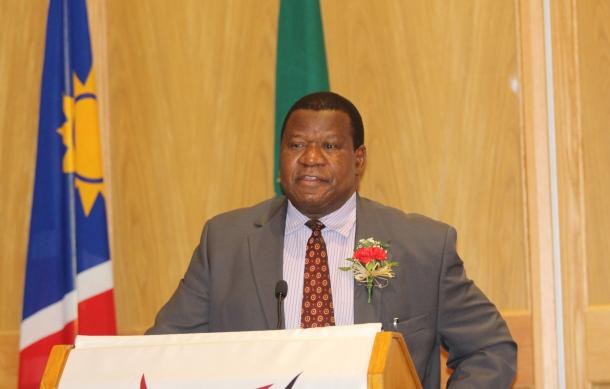
The Minister of Works and Transport says Namibia needs to upgrade its transport infrastructure to attract more investors as well as to be competitive globally.
John Mutorwa emphasized this at the inauguration of the B2 truck port service station at Arandis.
Mutorwa says the Erongo Region contributes immensely to the country's economy because of its large port in Walvis Bay, significant uranium mines, gold, marble, and lithium deposits, tourism, and the fishing sectors.
The opening of the truck port service station, Mutorwa says, will further support the demand for logistics and improve the social and economic status of the residents.
He stressed that it will also undoubtedly improve and smooth the movement of goods and commodities within the region, ease the flow of trade, improve efficiency, reduce costs, and attract new investors to the region.
"How is Namibia prepared to be competitive within this corridor that I am talking about because, again, there is this economic cooperation? If we provide the necessary infrastructure at our harbor, our airports, roads, and railways, then we can invite investors to come in, but if we relax, hoping things will come right by themselves, the other countries will go, and we will never catch up with them. We may scream, but they are gone to countries that will provide the necessary infrastructure."
Speaking at the event, Swapo Party Secretary General Sophia Shaningwa called upon the business community to invest in various sectors of the economy.
"There is still room for private sector investment in this sector in areas of warehousing and logistic hub truck ports, and today's ceremony is a clear testimony that private companies play an important role in achieving our national development goals of economic development and employment creation."
In a speech read on his behalf, Erongo Governor Neville Andre urged the public and private sectors to work together for the betterment of the county's future.
B2 truck port service station owner Cedric Lucas says they fought through storms such as COVID-19, which almost made it impossible to establish the service station.
The truck port service station, which operates on solar power, came at a cost of N$10 million.





